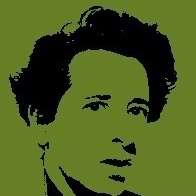The yearning for freedoom in Hannah Arendt’s work
Main Article Content
Abstract
The idea of freedom in Arendt’s work exceeds the experience that one has ever had of it. Clung on to a rich anthropological approach, this idea does not lose its political nature to become nourishment for the hope by honoring the essence of the concept itself; without turning down the always alert criticism against all that may endanger the valuable potential that humans possess: the ability to be free.
Downloads
Article Details

This work is licensed under a Creative Commons Attribution-NonCommercial-NoDerivatives 4.0 International License.
Authors retain ownership of copyright and reproduction rights.
Authors may make other independent and additional contractual arrangements for non-exclusive distribution of the version of the article published in this journal (e.g., inclusion in an institutional repository or publication in a book) as long as they clearly indicate that the work was first published in this journal.
Authors are allowed and encouraged to publish their work on the Internet (e.g. on institutional or personal websites) after the review and publication process, as it may lead to productive exchanges and to a wider and faster dissemination of the published work.
- Abstract 600
- PDF (Español (España)) 211
References
Arendt, H. La condición humana. Tr. R. Gil Novales. Barcelona: Paidós, 2005.
Arendt, H. Crisis de la República. Tr. G. Solana. Madrid: Taurus, 1998.
Arendt, H. Entre pasado y futuro. Tr. A. L. Poljak Zorzut. Barcelona: Península, 1996.
Arendt, H. Sobre la revolución. Tr. P. Bravo. Madrid: Alianza, 1998.
Arendt, H. Los orígenes del totalitarismo. Tr. G. Solana. Madrid: Taurus, 1999.
Arendt, H. ¿Qué es la política? Tr. R. Sala Carbó. Barcelona: Paidós, 1997.
Reyes Mate, M. “Hannah Arendt y los derechos humanos”. En Arbor, 742. Vol. 186 ,2010.

